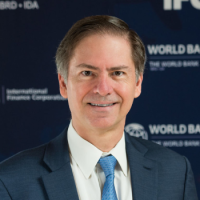Crime and Violence in Central America
The dimensions of the citizen security crisis in Central America cannot be understated. Fifteen to twenty years after the end of brutal armed conflicts in the region, levels of criminal violence in Central America exceed levels of violence during the wars. As the United Nations Development Program (UNDP) and others have noted, the seven countries of Central America—Belize, Costa Rica, El Salvador, Guatemala, Honduras, Nicaragua, and Panama—suffer from the highest levels of non-political violence in the world. The situation is most acute in the countries of the so-called “Northern Triangle”—El Salvador, Guatemala, and Honduras—but countries such as Costa Rica and Nicaragua are also witnessing rising rates of insecurity associated with the increased presence of organized crime.
The statistics are grim. Homicide rates in Central America are more than three times the global average and exceed the Latin American average by seven percentage points. Murder rates in the countries of the Northern Triangle are 5-6 times higher than in Mexico, a country whose orgy of narco-trafficking violence has captured U.S. and international attention. Not surprisingly, the murder rates in specific regions in Central America—Guatemala’s Petén or the department of Atlántida in Honduras, for example—similarly exceed the national averages and are closely correlated with drug trafficking corridors.
Regional public opinion polls demonstrate the ways that high levels of crime and violence as well as corruption detract from support for democracy and the rule of law. Latinobarómetro reports that citizen security is now the principal concern among citizens of the region, overtaking concern with unemployment for only the second time since the mid-1990s. Support for the idea of democracy and for the rule of law in the countries of the Northern Triangle are among the lowest in the hemisphere. LAPOP’s AmericasBarometer demonstrates the degree to which crime victimization and the perception of insecurity detract from support for democratic systems as well as respect for the rule of law.
Experts form the World Bank joined us to analyze the extent to which crime and violence are now a key development issue for Central American countries, with staggering economic costs at the national level. Crime and violence drag down economic growth, causing lost wages and labor, damaging the investment climate and diverting scarce government resources to strengthen law enforcement rather than promote economic activity or social well-being.
Speakers

Hosted By

Latin America Program
The Wilson Center’s prestigious Latin America Program provides non-partisan expertise to a broad community of decision makers in the United States and Latin America on critical policy issues facing the Hemisphere. The Program provides insightful and actionable research for policymakers, private sector leaders, journalists, and public intellectuals in the United States and Latin America. To bridge the gap between scholarship and policy action, it fosters new inquiry, sponsors high-level public and private meetings among multiple stakeholders, and explores policy options to improve outcomes for citizens throughout the Americas. Drawing on the Wilson Center’s strength as the nation’s key non-partisan policy forum, the Program serves as a trusted source of analysis and a vital point of contact between the worlds of scholarship and action. Read more
